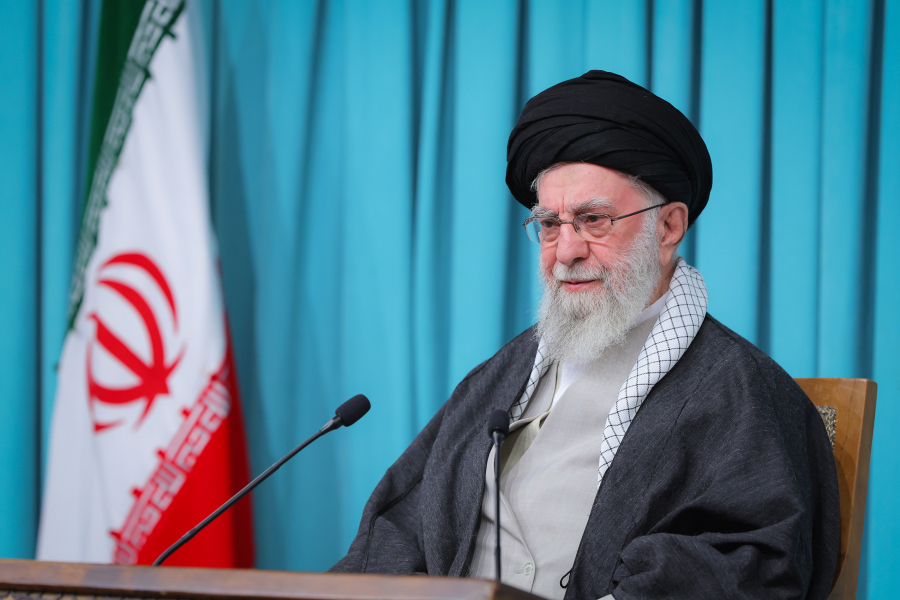The United States is not seeking negotiation; its aim is imposition and coercion.
negotiating with the US, Imam Khamenei elaborated on the harms of such negotiations, stating: “The counterpart has threatened that if you do not negotiate, such and such will occur. Therefore, accepting such negotiations signifies submission, fear, and trembling — a surrender of the nation and the country in the face of threats.”
He warned that yielding to US threats only encourages further coercive and endless demands. “Today they say that if you pursue enrichment, we will take action; tomorrow, possessing missiles or having relations — or lack thereof — with certain countries will become grounds for threats and pressure to force retreat.”
Imam Khamenei emphasized: “No nation of honor would accept negotiations under threat, and no wise policymaker would endorse them.”
The Leader described promises of concessions by the counterpart in exchange for compliance as false. Referring to past experience with the Joint Comprehensive Plan of Action, he stated: “Ten years ago, we concluded an agreement with the US under which a nuclear production center was to be closed, and enriched materials exported or diluted, in return for the lifting of sanctions and normalization of Iran’s file at the International Atomic Energy Agency. Today, after ten years, not only has our nuclear file not returned to normal, but its problems have increased within the Security Council and the IAEA.”
Imam Khamenei stressed the importance of not forgetting these experiences. “The US side has consistently broken promises, lied, issued sporadic military threats, and, when possible, assassinated our figures such as the esteemed Martyr General Soleimani or bombed our facilities. How can one negotiate with such a counterpart with trust and confidence?”
The Leader asserted: “Negotiations with the US regarding the nuclear issue, and perhaps other matters, are a dead-end.”
In the final part of his speech, he described negotiations with the US as serving the current president’s interests, providing a display of power and an attempt to present his threats as effective in bringing Iran to the negotiating table. Imam Khamenei underscored that the only path to progress and safeguarding the country is to become strong in all dimensions: military, scientific, governmental, and structural. “If we attain strength, the US side will no longer even issue threats,” he said.
Imam Khamenei further emphasized that the unity of the nation was the main factor in the enemy’s failure during the twelve-day Imposed War. “The assassination of commanders and some key figures was intended to incite chaos in the country, especially Tehran, with the help of their agents, disrupt the nation’s affairs, target the foundations of the system, and eventually eradicate Islam from this country. However, the rapid appointment of successors to the martyred commanders, the high morale of the Armed Forces, and the orderly governance of the country contributed to defeating the enemy. Yet, the most decisive element in the enemy’s failure was the unity and cohesion of the nation.”
He stressed: “The critical point is that this decisive unity remains intact and continues to exert great influence.”
The Leader described today’s Iran as the same Iran of 12 and 13 June 2025, noting: “Back then, streets filled with people chanting powerful slogans against the accursed Zionist regime and criminal US demonstrated the unity of the nation, a unity that still exists and will continue to exist.”
In conclusion, Imam Khamenei, marking the anniversary of the martyrdom of Sayyid Hassan Nasrallah, described the great mujahid as a tremendous asset for the Islamic world, Shi’ism, and Lebanon. “He may be gone, but the treasure he created remains. The story of Lebanon’s Hezbollah is ongoing. Hezbollah shouldn’t be underestimated, and this important treasure shouldn’t be overlooked. It’s a treasure for Lebanon and for the rest of the world,” he said.


















